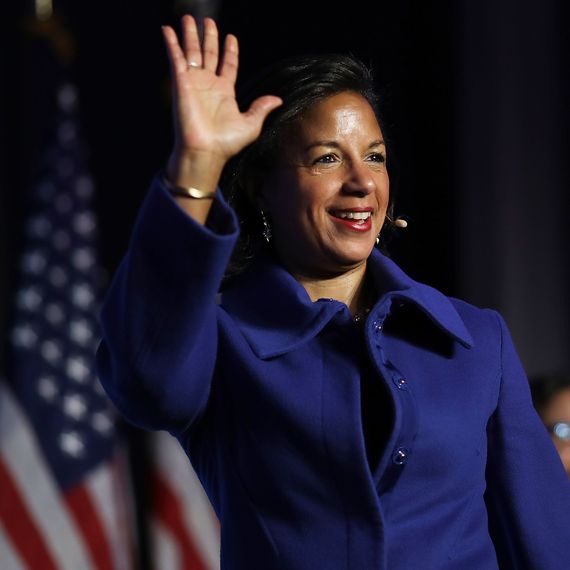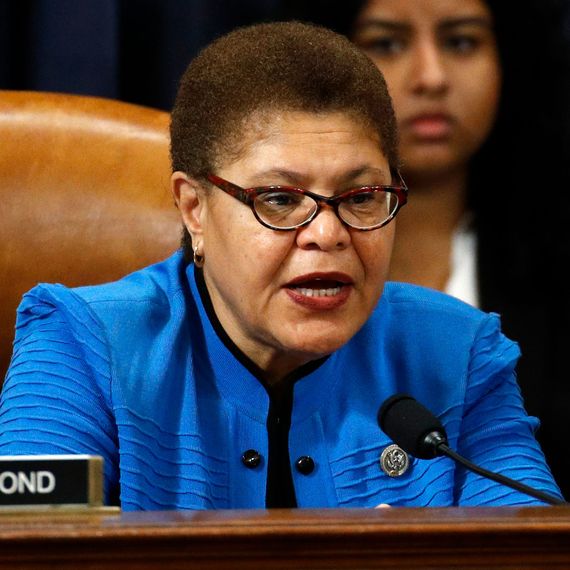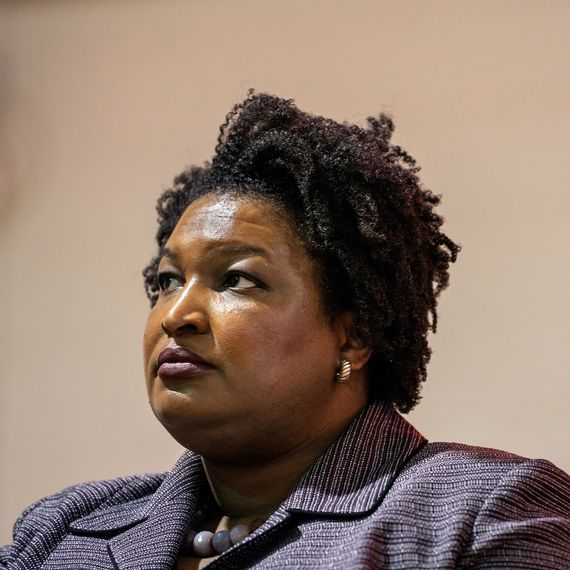
On Tuesday, Joe Biden set off a new wave of speculation about his running mate when cameras captured his handwritten talking points about Kamala Harris (“Do not hold grudges”; “Campaigned with me & Jill”; “Talented”; “Great help to campaign”; “Great respect for her”). What that means for the senator’s chances is unclear, but we should know soon; Biden also confirmed that he will announce his vice-presidential pick during the “first week in August.” So we are in the short rows for this long-anticipated event and can now present the main prospects for the last time, with their pros and cons. Unless noted otherwise, the order of this listing is my own ranking of likelihood, and with that and five bucks you can get a cup of coffee at Starbucks.
1.
The Front-Runner: Kamala Harris
Pros: The California senator is smack-dab in the middle of the party ideologically; has a solid résumé with federal, state (California attorney general), and local (San Francisco city prosecutor) experience; is both Black and Asian-American; and has presidential campaign experience (including, presumably, opposition and media vetting that would have exposed any serious skeletons in her closet). She’s telegenic and fluent on a wide range of issues. As someone from a very Democratic state with a Democratic governor, there’s little risk of her appointment sacrificing a Senate seat.
Cons: Some Biden supporters are still upset by her criticism of his record on school desegregation in a June 2019 Democratic debate, though Uncle Joe himself doesn’t seem to mind. She also drew some progressive criticism for her record as a prosecutor (“Kamala is a Cop”), though she may have offset that with her outspoken positioning during the George Floyd protests.
2.
The Ex-Cop: Val Demings
Pros: She received some favorable and high-profile attention as a member of the House impeachment managers’ team early this year. Demings is an established political presence in the Orlando area, a critical region in a key battleground state. Her law-enforcement background (24 years as a police officer and then 3 years as chief of police in Orlando, which experienced a sharp drop in crime rates during her tenure) is traditionally a credential Democrats crave. As a congresswoman, she has nothing in her record that invites intraparty criticism, and has been outspoken about her ability to promote improved police-community relations as a Black former police chief.
Cons: The unusually large number of excessive-force allegations against Orlando police when she was chief has become a problem. She hasn’t developed much of an issues profile in her brief congressional tenure (two terms), and as a member of the New Democrat Coalition in the House she may be suspect to progressives.
3.
The Late-Trender: Susan Rice
Pros: Rice is personally close to Biden, who worked with her a lot in the Obama administration, and passes his “chemistry” test. She has a long association with international causes dear to liberals, particularly human rights; has a good television presence; and is not offensive to any party faction.
Cons: Rice has never run for public office. She was a key figure in the Benghazi incident and thus a longtime object of conservative hate-mongering and conspiracy theories. Arguably, she duplicates Biden’s strengths rather than complements them.
4.
The Progressive Late-Trender: Karen Bass
Pros: Bass has had a distinguished federal and state career, including service as Speaker of the California Assembly and as the chairwoman of the Congressional Black Caucus. She’s a solid progressive favorite, attracting some endorsements from former Bernie Sanders and Elizabeth Warren supporters.
Cons: She is not as well known nationally as some contenders. And her past praise for Fidel Castro (as a member of the leftist Venceremos Brigade back in the 1970s, and in an eyebrow-raising statement upon his death) could cause the ticket heartburn in south Florida.
5.
The National Security Validator: Tammy Duckworth
Pros: As an Asian-American senator who lost two legs fighting in Iraq, Duckworth is a living repudiation of Republican claims that Democrats are anti-military and not sufficiently patriotic. She’s been very active on military, veterans, and disabilities issues, and became the first senator to give birth while in office. She’s also another Democratic senator whose seat would probably be secure without her.
Cons: She doesn’t have much of a profile on issues beyond her specialties, and it’s unclear how Black activists would react to her as a vice-president even though she is a person of color.
6.
The Fading Star: Elizabeth Warren
Pros: She has a large progressive following; is the party’s star on many of the economic and financial issues COVID-19 has brought to the fore; and is old enough that she might not squelch the ambitions of others when Biden retires.
Cons: There’s a persistent belief that Warren might handicap the ticket with white working-class (and particularly male) voters. And as the most prominent white contender, her selection might cause some serious grumbling among Black activists who rightly think Biden owes Black voters an awful lot.
7.
A New Star: Keisha Lance Bottoms
Pros: As mayor of Atlanta, she’s a key figure in a key 2020 state. She has come to the fore on two of this year’s big issues, handling the George Floyd protests with some skill and confronting Republican governor Brian Kemp over his refusal to allow her city to require mask-wearing.
Cons: Bottoms is in her first term as Atlanta mayor, and her résumé before that was limited to service on the Atlanta City Council.
8.
The Governor: Michelle Lujan Grisham
Pros: Grisham is a governor, and after Catherine Cortez Masto’s withdrawal from the veepstakes, she’s the only Latina prospect at a time when Latino enthusiasm for Biden is in question. Grisham has a solid, if brief, progressive record in New Mexico, and has prior service in the U.S. House.
Cons: She’s only been governor since the beginning of 2019, and had one eyebrow-raising moment when she allegedly violated her own coronavirus lockdown order to buy jewelry.
9.
The Crusader: Stacey Abrams
Pros: An intensely charismatic pol, Abrams is probably America’s leading voting-rights advocate now that her congressman, John Lewis, has passed from the scene. She’s from a key 2020 state and has managed to avoid ideological conflicts in her party. While narrowly losing in 2018, Abrams did better than any Democratic candidate for governor of Georgia since 1998.
Cons: Despite openly campaigning for the veep bid (or perhaps because she did?), as of last month she had not been vetted by the Biden campaign. She’s never held an elected position other than state legislator.
10.
The Difference-Maker: Tammy Baldwin
Pros: Solidly progressive, but a team player, Baldwin was also the first openly gay person to win a Senate seat. She’s a very strong vote-winner from a state, Wisconsin, that Trump really needs to win.
Cons: Another prospect whose elevation might be viewed as a slight to Black voters, particularly given the prominence of so many competitive Black candidates for the job.
The Others: Whitmer, Hassan, Raimondo, and ????
There are other prospects who have been “mentioned,” particularly Michigan governor Gretchen Whitmer, who had some national prominence on coronavirus management early in the pandemic. But choosing her, New Hampshire senator (and former governor) Maggie Hassan, or Rhode Island governor Gina Raimondo would run into the same problem as elevating Baldwin: Is this the right year for a well-qualified, but white, woman? That’s unclear, but everything we know about Biden and his operation is that they are unlikely to complicate their battle against Trump by taking any undue risks with the loyalties of the Democratic base.








































